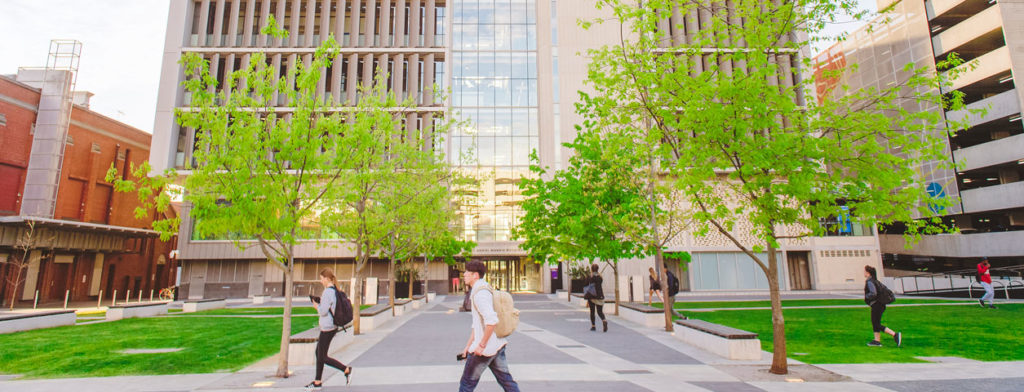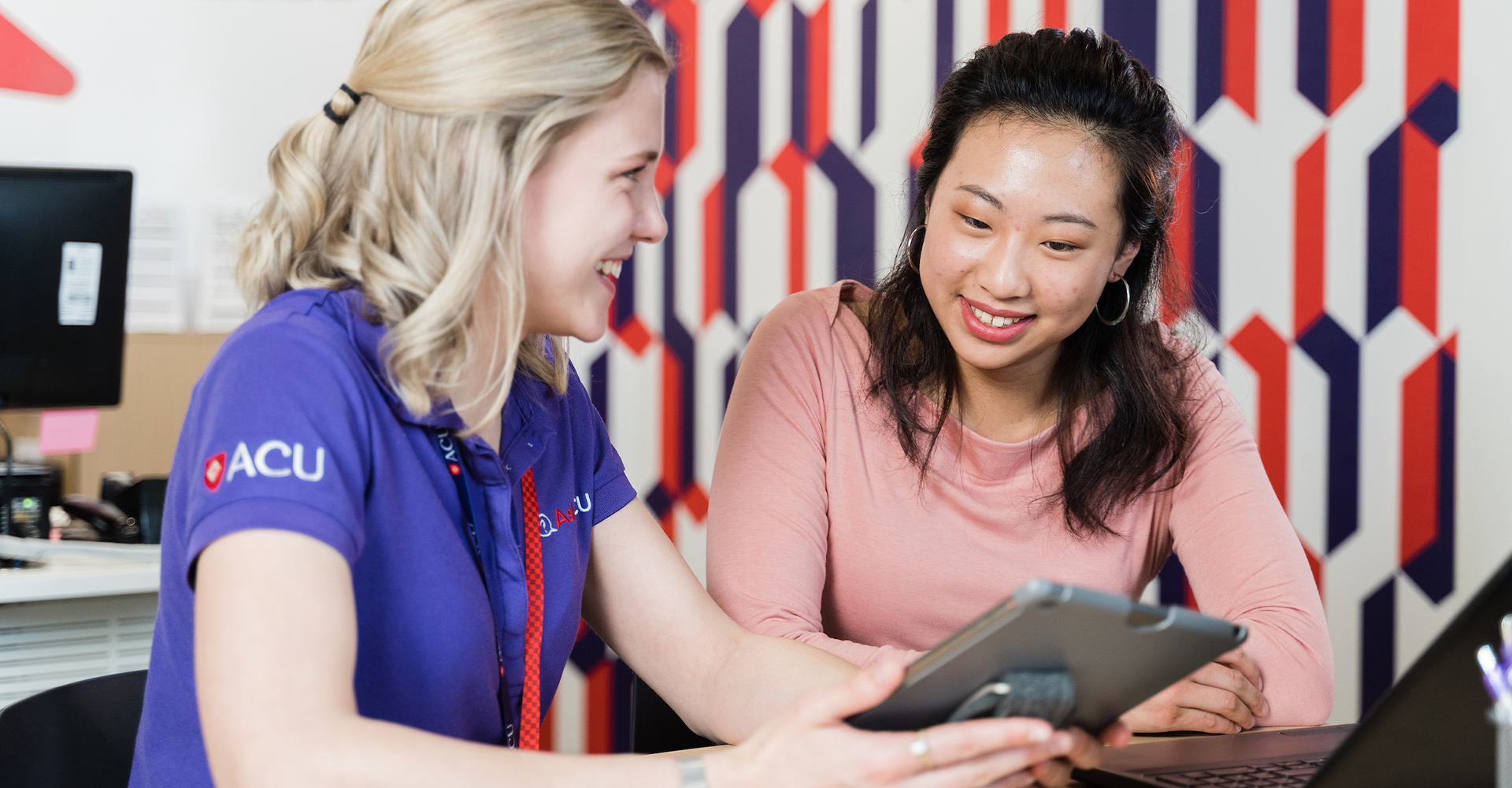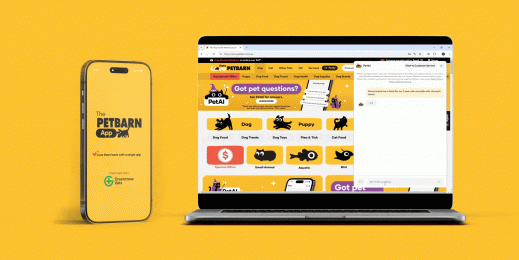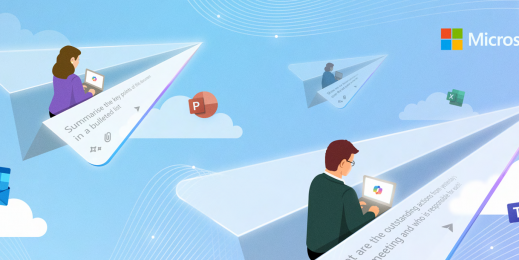
Australian Catholic University harnesses cloud, data and AI to spur staff and student success
The Australian Catholic University is ranked among the top 2 per cent of all tertiary institutions and is in the global top ten of Catholic universities. It operates eight campuses in Australia, a ninth in Rome and boasts 35,000 students and around 6,500 staff and partners.
The Australian Catholic University’s (ACU) strategic plan through to 2023 sets out its ambition to achieve excellence in research, service, learning and teaching. Technology stewardship and digital foundations will play a critical role in being able to accomplish that.
For ACU, empowering staff is the catalyst for creating a modern and secure workspace accessible from anywhere and any device. The digital transformation will help ACU to collaborate, innovate, sustain and serve to deliver new solutions for students, uplift the cybersecurity posture of the organisation and deliver IT-enabled value faster and more effectively.
Dr Stephen Weller, Chief Operating Officer and Deputy Vice–Chancellor of ACU, said; “Amongst the pillars of our strategic plan through to 2023 is our intent to deliver an engaging, technology-enriched and immersive student experience. We will also strive for adaptable, accountable and transparent business and service delivery models.
The digital transformation now underway will play a critical role in terms of fulfilling our strategic goals for the University. We are empowering students and staff with modern tools and data-rich insights – setting them up for success.
ACU has always been on an exponential growth path when it comes to technology. Microsoft 365 is at the heart of the transformation.
Niranjan Prabhu, Chief Information Officer and Director of IT at ACU, says “We’re creating a modern workspace environment that ensures seamless collaboration and optimised communication to increase efficiency and enhance the staff experience. It accelerates the integration of new technologies and applications to strengthen our ability to innovate.”
The digital workspace nowrolled out for staff offers:
- Access to SharePoint Online (replaces on-premise SharePoint)
- OneDrive for Business (replaces network share drives)
- Teams and Teams Telephony for communication and collaboration (replaces Skype for Business and Cisco desk phones)
Another critical part of the Digital Workspace program is the next-generation meeting room experience, consisting of room panels that display room availability and facilitate on-demand room bookings. Staff can also use custom Outlook add-ins to order additional room services such as catering or IT support. These rooms also provide ‘single click to join’ functionality, even from non-Microsoft devices and tools.
ACU is also developing its own applications and workflows to replace existing third–party workflows using the Microsoft Power Platform. Microsoft Power Platform provides the flexibility to embrace process changes and emerging capabilities along the transformation journey. It makes the development process more predictable and repeatable, enabling faster delivery with lower risks.
Prabhu says that the Microsoft ecosystem was selected as it “provides breadth and space for opportunity. We wanted to leverage our current investment and integration of multiple capabilities to achieve a consistent digital experience for our staff and students.”
Access to the online systems is governed using Azure Active Directory and Multi–Factor Authentication.
Prabhu explains that
The ACU digital workspace enables the best experience for employees and students securely, regardless of their location or device. They have the same seamless experience no matter where they are.
This includes full online functionality, the ability to access workspaces, join meetings, collaborate, interact with peers, and engage with internal and external stakeholders. With eight campuses nationally at ACU, this has also facilitated continuous dynamic virtual social interactions between campuses – physical distance simply doesn’t matter anymore.
During the COVID-19 pandemic, the digital workspace made the entire working from home experience possible, including secure remote access to files and applications and collaborating across borders with Microsoft Teams.
ACU’s dashboard analytics provide complete transparency of the adoption and usage of the digital platform across business units. Unsurprisingly, when COVID-19 struck and forced a remote work model on the University, these analytics revealed that the digital workspace and associated tools were widely adopted with less than 1 per cent of staff raising service tickets and no significant resistance.
As an example, in October 2019 ACU had 1100 active Teams users – by March 2020 that had soared to 8,700, a 690 per cent increase in just five months. ACU analysis also suggests productivity has more than tripled since the introduction of the digital workspace.
To achieve all this, ACU has worked in collaboration with Microsoft Partners Espire Infolabs and InSync to deploy these leading-edge cloud-based digital tools.
The entire transition to remote working for ACU staff was achieved in about two weeks. In terms of effecting massive change, Prabhu notes; “There’s nothing like a crisis to present an unprecedented opportunity for change and transformation.”
This change and transformation extends to students and will likely prove enduring according to Dr Weller, who says that the pandemic experience has; “Proven clearly that people want to have more choice, with 50 per cent of students choosing to attend lectures on campus and 50 per cent choosing to view it online.”
In the future it won’t be an either-or proposition, rather a case of digital everywhere.
What the pandemic has shown is that while everyone embraced more online experiences, it’s not a substitute for human interaction in person. That doesn’t mean that as a student I want to go to every tute every week in person, but it does mean that almost every aspect of learning can be digitally enriched.
he says.
For example, students on placement (e.g. assisting in a hospital) want to be able to use a tablet to access their notes on OneDrive or Teams where and when they want, without being tethered to a campus.
Dr Weller says there are other opportunities to use advanced technologies to promote learning; for example, using augmented reality to run virtual workshops that can “develop a level of digital competency to complement in–person learning. Maybe the student wants to learn online this morning and go into the campus in the afternoon. We need to make it all a digital experience – not exclusively on campus or online.”
Chatbot Support
To further enhance the service experience, ACU has created a Chatbot, powered by Azure and known as AVA (ACU Virtual Assistant). AVA uses natural language processing capabilities and integrations (such as ServiceNow, ACU COVID-19 FAQ, Microsoft Learning Pathways and Who bot) to provide instant, on-demand support to ACU staff from within Teams and SharePoint.
“Furthermore, when interacting with our chatbot, if the staff member requires further assistance, there is the option to seek help via handover to a live chat or log a service ticket through ServiceNow,” says Prabhu. “This means staff are fully supported no matter their issue.
“There are exciting plans in store for AVA” he says, which include incorporating voice activation, partially intended to create an improved experience for those living with disabilities.
Transforming Teaching Spaces
ACU’s digital transformation was initially deployed to staff, with the next phase currently underway to extend the technology to students. The University is presently piloting Microsoft Teams within some course units. The intention is to foster closer partnerships between staff and students, including facilitating interactive classroom experiences and seamless multi-channel learning and collaboration.
“For teaching space meeting technology, we currently use Zoom. Our intention is to transition to Microsoft Teams, to ensure a single platform across the University. As staff are familiar with Microsoft Teams, we expect this to be relatively straightforward.” says Prabhu.
“Furthermore, the ease of sharing documents and ability to live chat during a meeting, as well as emerging features, such as the “raise hand”, or running a 3×3 video calls, are helping to spur the transition to Microsoft Teams.”
To provide options for students, ACU is introducing virtual laboratories. Instead of physically attending the campus, students can remotely access cloud-based digital laboratory resources using Azure Lab Services via Microsoft Teams. This also eliminates the need for laboratory set up by ACU technicians.
Students will be able to have the same experience at home as on campus, and that’s really important for both our existing student experience, and where we see education heading in the future. We want to make sure that students are equally equipped to study wherever they choose to be
Supporting Student Growth
Another important program of work underway at ACU is the establishment of a Data Lake that leverages Power BI and the Azure Data Platform to support students who may need assistance or are at risk of separating permanently from the University prior to course completion.
Prabhu explains;
We’re generating and capturing more data than ever before, on an increasingly varied set of data sources, providing us with the opportunity to understand support student success throughout the student’s lifecycles. Effectively managing that lifecycle is the key to excellent learning outcomes and student success.
Common risk factors include struggling with grades, financial stress, and social or environmental factors.
To assist at-risk students, ACU is looking to leverage the data to identify patterns that allow them to predict and identify who may need support. Data on student engagement, interactions, attendance and participation, as well as their overall behaviour, can give early warnings that support is required.
“We’re assessing the parameters that can be a red flag to academics and professional staff allowing them for early intervention and support,” says Prabhu, referring to financial, pastoral or tutoring support. “We can monitor the success of programs that engage and assist students in all aspects of the student lifecycle. Interpreting this data will ensure early intervention of students at risk, as well as understanding student well-being across the spectrum of student abilities and competencies.”
Prabhu acknowledges the delicate balance between using data to provide valued support and respecting student privacy. “We definitely need to strike a respectful and conscientious balance while achieving the best outcomes for both the student and the university,” he says. “The wellbeing of our students is very important to us, so we’re eager to get this right.”
The other balance that needs to be struck in a post-COVID world as ACU regroups to face whatever will be the next normal, is between investing in technologies that will improve the staff and student experience and building capabilities within current financial constraints.
Prabhu states the medium-term focus for IT at ACU will be to “contain, sustain, and grow.” This means making smart decisions about technology deployment that can boost efficiency, deliver savings through process automation, as well as create a competitive advantage – such as having the ability to build and leverage a rich data lake of insights to support the University decision–makers and students as they strive for success.
Dr Weller is clear that; “The quantum spent on virtual infrastructure will only continue to increase exponentially.” Also, he expects that the search for trust will mean that the investment in cyber security will increase substantially.
Ultimately, he says the ACU’s Digital Workspace initiative is about supporting ACU personnel, faculty and students; “Anywhere, any device, anytime… empowering them to do what they want to do where, when and how they want to do it.”


















